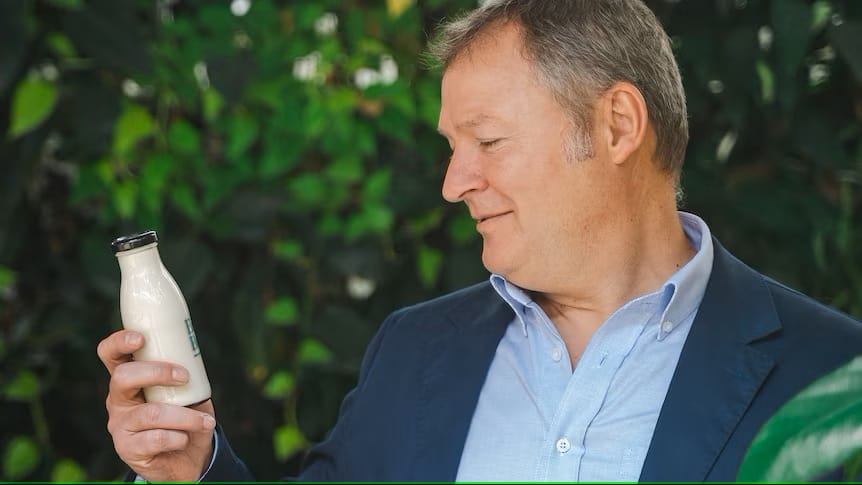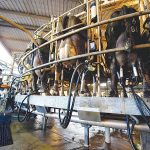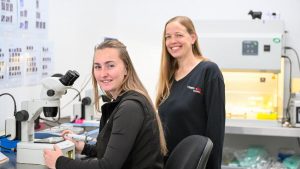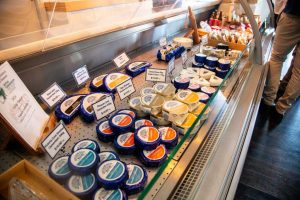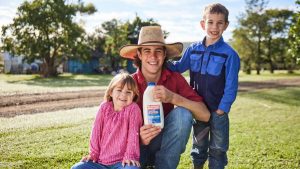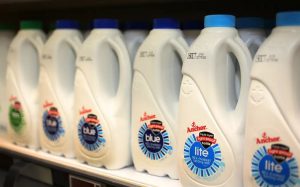
Lab-brewed milk could be on Australian shelves as soon as 2025.
Key points:
- Startup venture Eden Brew is looking to have animal-free milk on supermarket shelves
- Its lab-cultured proteins simulate those found in dairy milk
- The company says worldwide demand for protein will double by 2050
The animal-free product is part of the “alternative proteins” industry attracting global investment as worldwide demand for protein grows.
While meat grown from animal cells has been in the spotlight, synthetic milk could be the next major player.
Australian start-up venture Eden Brew has attracted $25 million to date from investors, including local music icons Bernard Fanning and Angus Stone.
The company was co-founded by Australian dairy co-operative Norco.
The development is a strategic move for Australia, which has a $3 billion-a-year dairy industry that employs more than 40,000 people.
Difficult to tell the difference
Eden Brew will cultivate the proteins found in cow’s milk to create a powder that can be rehydrated as a milk alternative and used in other dairy-based products, such as ice-cream.
“We’re looking to very closely emulate the dairy sensory experience and the nutritional profile of dairy milk,” Eden Brew chief executive Jim Fader said.
“We believe that our final product will be so close [to cow’s milk] it’ll be very difficult to discern any difference.”
The company will use precision fermentation, which has been widely used for more than 20 years to produce rennet, an essential ingredient in cheese traditionally sourced from calf stomachs.
Mr Fader said it was hoped that precision-fermented milk would eventually supplement the country’s traditional milk supply.
“It’s less about replacing what’s already here and it’s more about augmenting supply, because we’ve got to make a lot more food really quickly,” he said.
Australia exported more than $700 million in skim and whole milk powders in 2019-20 according to the CSIRO, which has invested in Eden Brew through its main sequence innovation fund.
The science body said there were major opportunities for Australian food manufacturers to harness the process to satisfy the world’s growing demand for protein.
Who’s buying alternative protein?
According to Agriculture Victoria chief executive Matt Lowe, 70 per cent of the food and fibre produced in Australia is exported overseas, with a quarter of that coming from Victoria.
Mr Lowe told this year’s AltProteins industry conference that growing demand for protein was particularly acute in Asia, where populations and incomes were increasing.
“Supporting the growth of new and emerging industries such as alternative proteins is a really important responsibility for us,” he said.
“It talks greatly to the strides that the Australian ecosystem is making, the profile that we’ve got and the science and the R&D [research and development] standards that we are achieving.
“We don’t do it out of the goodness of our hearts. We do it noting that alternative proteins have a really strong base to build on in Victoria.”
The Victorian government’s innovation fund Breakthrough Victoria has invested $6 million in Eden Brew, with additional finance from American and European investors.
Future of food
The interest in precision fermentation has also come from within the dairy industry, with alternative proteins being touted as the sustainable alternative to traditional animal food products.
Mr Fader said it showed the widespread need for the technology to hit the market.
“I think it’s really exciting. We’re creating a lot of jobs. We’re on the world stage attracting blue-chip investment.”
Milk and meat produced in a vat will not need the millions of hectares of pasture that dairy and beef cows need, and according to industry, will use a fraction of the water.
But Mr Fader admitted that production of the animal-free product was energy intensive, with half of the running costs of a precision fermentation plant going towards energy use.
This leaves the dairy industry questioning the environmental credentials of lab-brewed milk.
Research and development body Dairy Australia said both industries had similar emissions footprints at this stage.
“I’m sure they’ll be working hard to improve their sustainability credentials just as the dairy industry is,” Dairy Australia sustainable nutrition manager Melissa Cameron said.
“To deliver that milk taste, mouth feel, functionality and nutrition that cow’s milk has is going to be quite a feat as well.”
Food safety check
Eden Brew expects to lodge an application with the food safety regulator for permission to sell the non-animal dairy products early next year.
The review period will take about 12 months, time the company intends to use to persuade consumers to dabble in the alternative milk.
“It’s a very safe and widely adopted technology, but it hasn’t been necessarily used at large scale in food,” Mr Fader said.
“So, we’ve definitely got a job to do to explain to customers what the product is, how it’s made, why it’s safe, and how it adds value to the repertoire of choices that they’ve got.”
